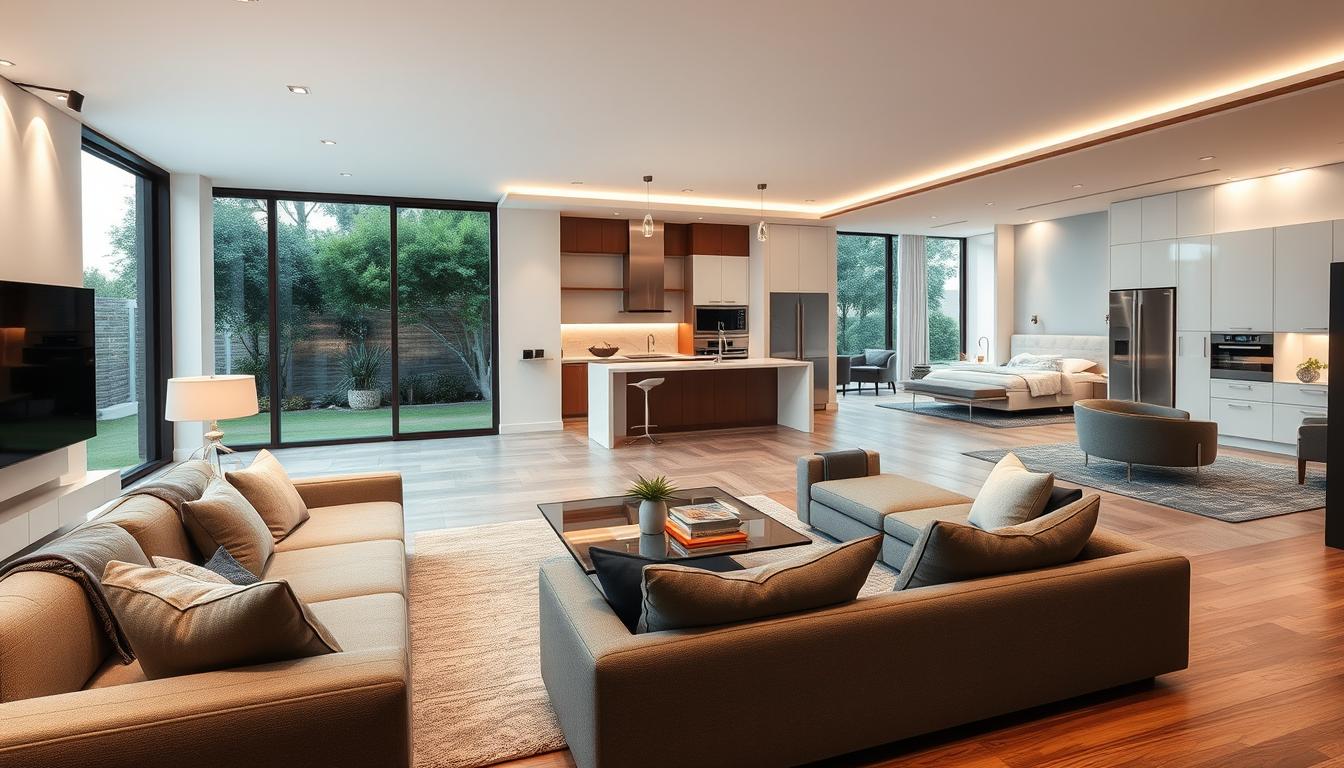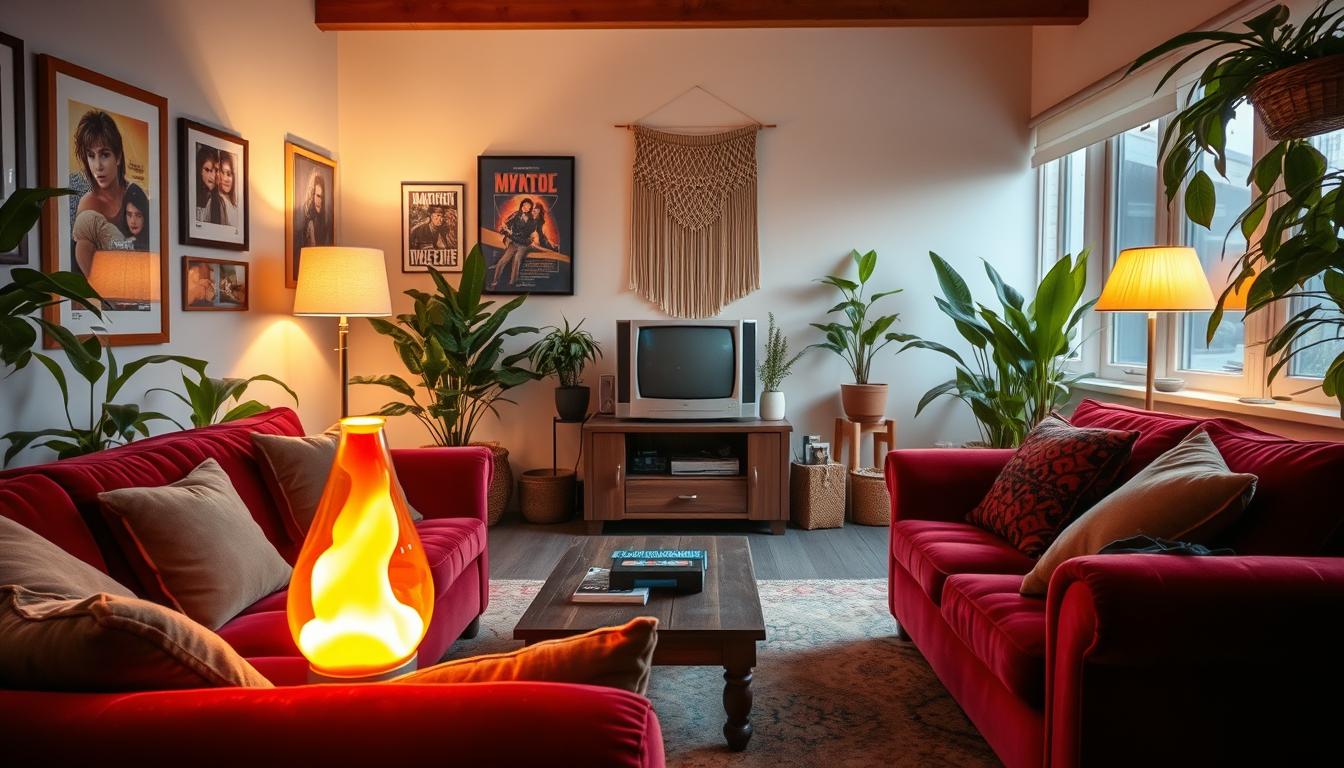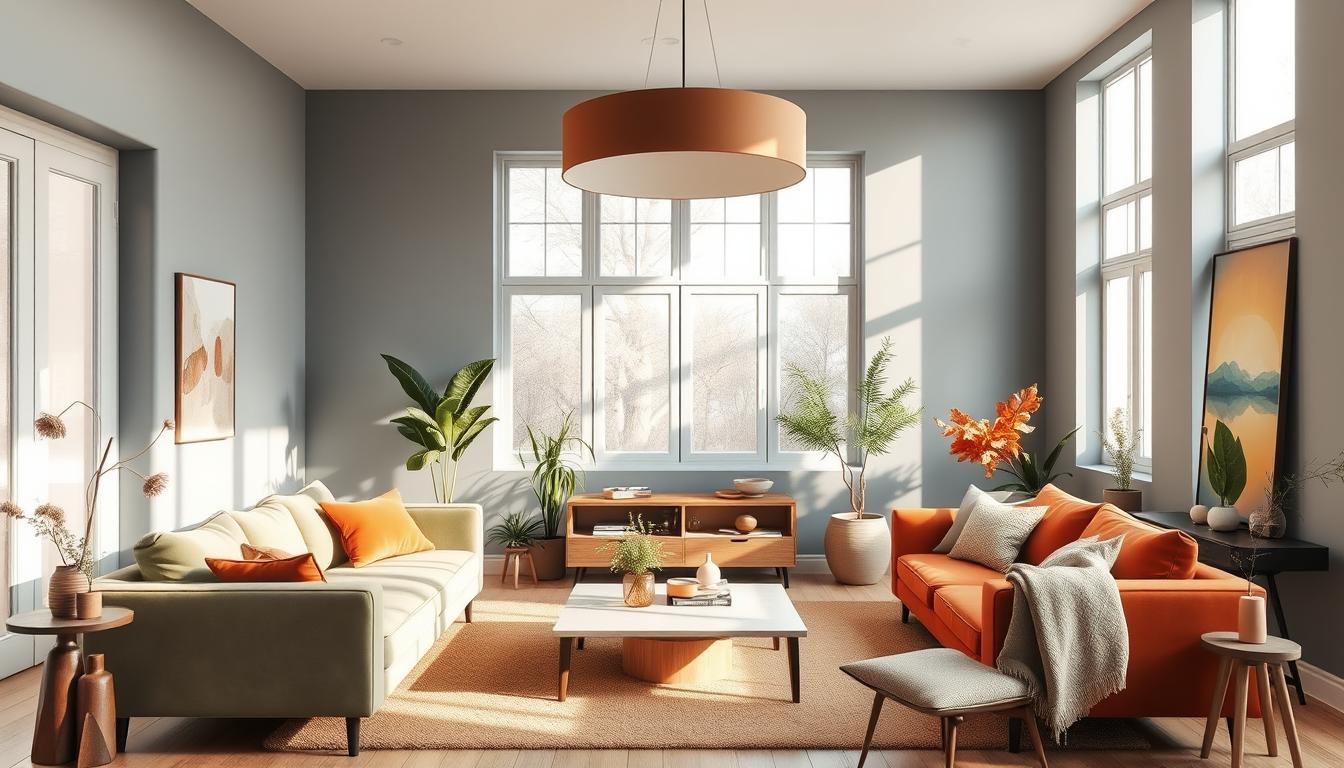Did you know the national average cost for interior design per room is about $1,000? This fact shows how important it is to know what affects 3D design costs. The cost can change a lot based on the project’s size, how complex it is, and the designer’s experience.
We will look at what affects interior design price estimates. We’ll give you a detailed guide to help plan your project well.
Key Takeaways
- Understanding what affects 3D design costs is key for planning your project.
- The project’s size and complexity greatly impact the cost.
- The designer’s experience is also a big factor in the final cost.
- A good guide can help you understand the process and estimate costs.
- Planning ahead can help avoid unexpected expenses.
Understanding Home Interior 3D Design
3D home interior design is changing how we plan our living spaces. It lets us see our homes in a digital form. This makes it easier for homeowners and designers to work together.
What is 3D Home Interior Design?
3D home interior design uses special software to make a 3D model of a home’s inside. It lets us see things like furniture, lighting, and colors in a real way. This makes it easier to decide on design choices.
Benefits of Using 3D Design Services
There are many good things about 3D design services. Some key benefits are:
- Improved Visualization: 3D designs show us what the final product will look like. This helps avoid mistakes.
- Enhanced Communication: 3D designs help everyone involved talk better. This makes sure everyone agrees on the design.
- Increased Accuracy: 3D designs are very precise. This means fewer mistakes and less money spent on fixes.
Let’s look at how 3D design services can save money:
| Design Service | Traditional Design | 3D Design |
|---|---|---|
| Average Cost | $2,000 – $5,000 | $1,500 – $3,500 |
| Revision Costs | $500 – $1,000 per revision | $0 – $500 per revision |
The table shows 3D design services can save a lot of money. They help avoid expensive changes later on.
When looking at 3D rendering service pricing and virtual home design cost, think about the long-term savings. 3D design services can save you money in the end.
Factors Influencing 3D Design Costs
The cost of 3D home interior design depends on several key factors. Knowing these can help you budget better for your design project.
Project Size and Complexity
The size and complexity of a project affect its cost. Larger projects need more time, resources, and people, raising costs. Complex designs, like custom ones, also require more effort and expertise, adding to the cost.
For example, designing a small, simple space like a studio apartment is cheaper. But designing a big, complex house with unique features costs more.
Designer Experience and Expertise
The designer’s experience and expertise greatly influence the cost. More experienced designers charge more because they bring more skill and knowledge. Their work is often better and faster, making the cost worth it.
When choosing a designer, look at their portfolio and past work. Make sure their skills match your project’s needs.
Geographic Location Considerations
Where you are also affects 3D design costs. Designers in big cities or expensive areas charge more than those in rural areas. This is because of higher living costs, demand, and market conditions.
To understand how these factors work together, here’s a cost breakdown by project size:
| Project Size | Average Cost Range |
|---|---|
| Small (Studio/1 Bedroom) | $500 – $1,500 |
| Medium (2-3 Bedrooms) | $1,000 – $3,000 |
| Large (4+ Bedrooms) | $2,000 – $5,000+ |
By knowing these factors and their impact on 3D home interior design costs, you can plan and budget better. This ensures you get the best value for your money.
Average Cost Range for 3D Home Interior Design
Figuring out the average cost for 3D home interior design is key for planning your budget. The price can change a lot, depending on how designers charge.
Designers often use different pricing models. They might charge by room, by hour, or by square foot. Knowing these models helps you guess the total cost of your design project.
Typical Pricing Models Explained
The fixed rate per room model is simple. Designers get a set fee for each room they work on. This is good for homeowners who know which rooms they want to redo.
The hourly rate model charges by the hours worked. This can vary a lot. The cost depends on how complex the design is and how long it takes to finish.
The per square foot fee model bases the cost on the space’s size. This is helpful for big projects. The cost goes up with the size of the area.
Cost Estimates for Small vs. Large Spaces
For small spaces, like a single room (100-200 square feet), costs range from $200 to $1,000. This depends on the pricing model and the designer’s skill.
For larger spaces or whole homes, costs go up a lot. For example, designing a 2,000 square foot home could cost $2,000 to $10,000 or more. This depends on the design’s complexity and the pricing model.
Understanding these pricing models and estimating costs based on your space’s size helps you budget better for your 3D home interior design project.
Costs Related to Software and Tools
It’s key for designers and homeowners to know the costs of software and tools for 3D home design. These costs can greatly affect your budget.
Popular Software Used in 3D Design
There are many software options for 3D design, each with its own features and prices. Some top choices include:
- CAD programs like AutoCAD and SketchUp
- 3D modeling tools such as Blender and 3ds Max
- Rendering software like V-Ray and Corona Renderer
These tools meet different needs and skill levels, affecting the project’s cost.
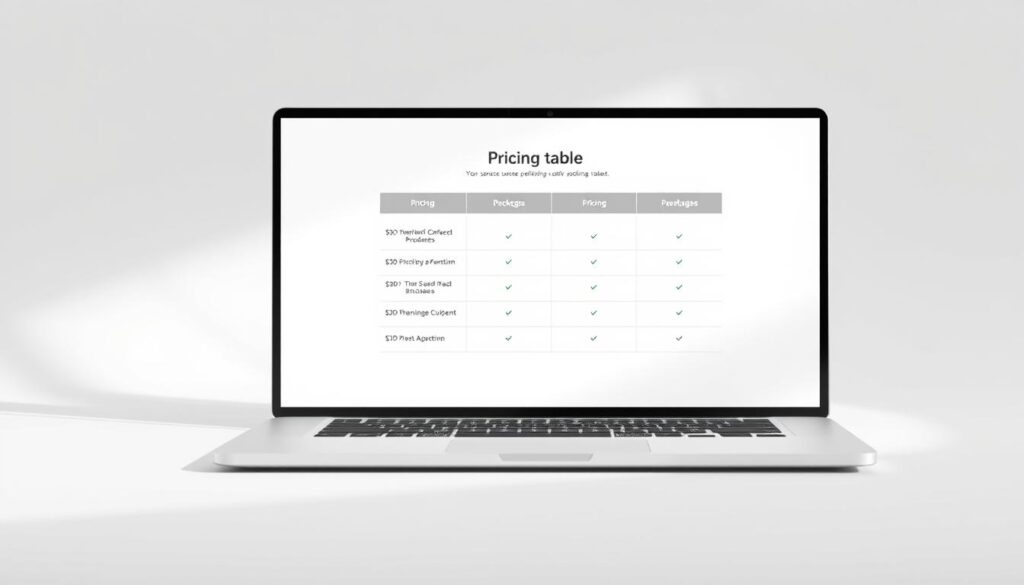
Subscription vs. One-Time Purchase Costs
The price of software and tools changes based on whether it’s a subscription or a one-time buy. Here’s a look at the difference:
| Software Type | Subscription Model | One-Time Purchase |
|---|---|---|
| CAD Programs | $20-$50/month | $1,000-$3,000 |
| 3D Modeling Tools | $10-$30/month | $500-$2,000 |
| Rendering Software | $20-$100/month | $500-$5,000 |
When picking software, think about the initial cost and ongoing expenses like updates and support. An interior design cost calculator can help estimate these costs.
Knowing the costs of different software and tools helps homeowners and designers make budget-friendly choices. This ensures their project meets their needs and budget.
Additional Fees and Expenses
When you think about 3D home interior design, remember there are extra costs. These can change your budget a lot. It’s key to know what the first quote covers and what might cost more.
Consultation Fees
Consultation fees are common in 3D home design. They cover talking with the designer and figuring out what you need. These fees can change a lot based on the designer’s skill and your project’s details.
For example, some basic talks might be in the first quote. But deeper talks or more chats can cost extra. Make sure you know what’s included in the consultation fee to avoid surprises.
Revisions and Modifications Charges
Revisions and changes can also add to your bill. Some designers might include a few changes in the first quote. But too many or complex changes can cost more. Knowing the rules and costs for changes is important.
Here’s a quick look at possible extra fees:
| Service | Average Cost | Frequency |
|---|---|---|
| Initial Consultation | $100-$300 | One-time |
| Additional Revisions | $50-$200 per revision | Variable |
| Complex Modifications | $200-$500 | Variable |
Knowing about these extra fees helps you budget better for your 3D home design. It’s smart to ask about any other costs that might pop up. This way, you’re ready for the total price.
Comparing Online Design Services vs. Local Designers
Homeowners looking at 3D home interior design face a choice. They can go for online services or local designers. Each has its own set of benefits and drawbacks that affect the project’s outcome.
Pros and Cons of Online 3D Design Services
Online 3D design services are easy to use and often cheaper. They offer many design choices to fit different tastes. But, they might not have the personal touch or local knowledge a local designer can provide.
Key Benefits of Online Services:
- Convenience and accessibility
- Competitive pricing
- Wide range of design options
To learn more about online interior design services, check out this link.
How Local Designers Set Their Prices
Local designers offer a personal touch and local insight. Their prices depend on their experience, location, and the project’s complexity.
| Factor | Influence on Pricing |
|---|---|
| Experience | More experienced designers charge higher rates |
| Location | Designers in urban areas may charge more than those in rural areas |
| Project Complexity | More complex projects require more time and expertise, increasing costs |
In conclusion, choosing between online services and local designers for 3D home interior design depends on your needs, budget, and preferences. Knowing the pros and cons of each helps homeowners make a choice that fits their budget and design goals.
Budgeting for Your 3D Home Design Project
To keep your 3D home design project on track, setting a realistic budget is key. You need to know all the costs involved. This includes design fees, software costs, and planning for unexpected expenses.
Setting a Realistic Budget
Creating a realistic budget means knowing all the costs of your 3D home design project. This includes designer fees, which can change based on the designer’s experience and skills. You also need to think about software and tool costs.
To start, use an interior design price estimate or an interior design cost calculator. These tools can help you estimate your budget.
| Cost Component | Estimated Cost | Description |
|---|---|---|
| Designer Fees | $500-$2,000 | Fees charged by the designer for their services |
| Software Costs | $100-$500 | Costs associated with 3D design software |
| Additional Expenses | $200-$1,000 | Miscellaneous costs including revisions and consultations |
Contingency Planning for Unexpected Costs
Even with a good budget plan, unexpected costs can happen. It’s important to have a backup plan for these surprises. A good rule is to save 10-20% of your total budget for unexpected expenses.
“A well-planned budget is not just about covering the expected costs; it’s also about being prepared for the unexpected.” –
By knowing the possible costs and planning ahead, you can keep your 3D home design project affordable and successful.
The Process of Hiring a 3D Designer
Finding the right 3D designer is key to making your home design come to life. It’s all about precision and accuracy. Here’s how to do it right.
Initial Consultation and Quotes
The first step is talking to the designer. You’ll share your project needs and what you expect. You’ll also get a quote that outlines the work, timeline, and cost.
Getting quotes from different designers is smart. It lets you compare prices and services. This way, you can choose based on your budget and project needs.
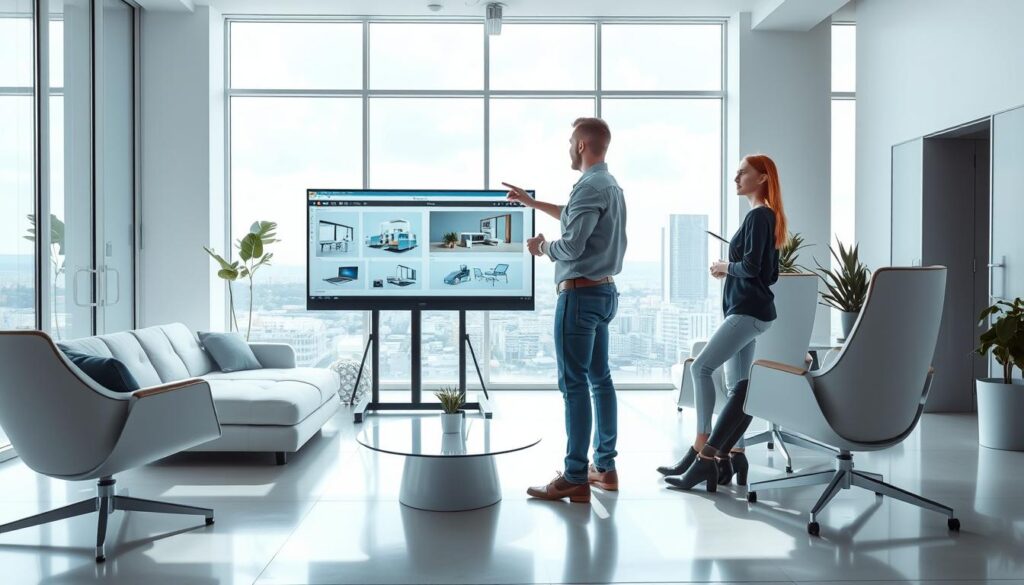
Evaluating Portfolios and Past Work
Looking at a designer’s past work is crucial. You want to see their experience in 3D home interior design. Their portfolio should show their creativity and skill.
A good designer’s portfolio will show their technical skills and understanding of your vision. This is why reviewing their past work is important.
“The right designer can make all the difference in bringing your vision to life.”
When checking past work, look at the design quality, detail, and how well they meet client needs. This helps you see if they’re a good match for your project.
Understanding the Return on Investment
When planning a home renovation, knowing the ROI of 3D design is key for budget planning. We look at how 3D home interior design can boost your home’s value and help with decision-making.
How 3D Design Improves Home Value
3D design can greatly increase your home’s value by showing a clear, realistic design. This helps in making smart choices and avoids expensive mistakes during renovation. Experts say a well-made 3D model can make your home more attractive to buyers, if you decide to sell later.
Key benefits of 3D design in improving home value include:
- Enhanced visualization of the design
- Better decision-making
- Reduced risk of costly mistakes
- Increased appeal to potential buyers
Value of Visualization in Decision Making
The visualization from 3D design is vital for making decisions. It lets homeowners see what their renovation could look like. This makes choosing materials, colors, and layouts easier. Design experts say, “Visualization through 3D design empowers homeowners to make confident decisions about their space.”
The importance of visualization can be seen in several areas:
- Clarifies design concepts
- Facilitates communication between homeowners and designers
- Helps in selecting materials and finishes
By using 3D design, homeowners can make sure their renovation is both beautiful and budget-friendly. This approach not only increases the home’s value but also makes the renovation process smoother.
Frequently Asked Questions About Costs
Homeowners often wonder about the costs of 3D home interior design. It’s important to know what you’ll spend to make good choices for your project.
What is the Average Cost for a 3D Design?
The cost of a 3D design varies a lot. It depends on the project’s size, how complex it is, and the designer’s experience. A simple project might cost a few hundred dollars. But a big, detailed project could cost thousands.
On average, you might pay between $500 to $5,000 for a 3D design. This depends on how big and detailed your project is.
Factors influencing the cost include:
- The size of the area to be designed
- The complexity of the design requirements
- The level of detail required in the 3D rendering
- The experience and reputation of the designer or design firm
Are There Hidden Costs to Consider?
There might be extra costs beyond the initial 3D design service. These could be for design changes, extra services like virtual staging, or high-quality renderings. Make sure you know what’s included in the first quote and what might cost more.
To avoid surprises, consider the following:
- Request a detailed breakdown of the costs from your designer
- Understand the policy on revisions and any associated fees
- Clarify the cost of any additional services you might need
Knowing these details helps you budget better for your 3D home design. It makes the whole process smoother from start to finish.
Conclusion: Making the Best Investment
Knowing the costs of 3D home interior design is key to a smart home investment. Consider project size, designer experience, and software costs to set a budget. This way, you can plan your virtual home design cost effectively.
Budgeting and Choosing a Designer
To get a clear interior design price estimate, look at the designer’s experience and skills. Check their portfolios and past projects. It’s wise to have a budget and a plan for extra costs.
Embarking on Your 3D Design Journey
With the advice from this article, homeowners can make smart choices. They can create a beautiful, functional space that fits their needs and budget. We’ve given you the tools to start your 3D design journey confidently.

